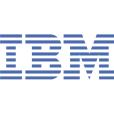 IBM today announced new industry models and consulting services that deliver industry-specific best practices to help health insurance providers and financial institutions leverage their institutional know-how and information assets to gain a competitive advantage.
IBM today announced new industry models and consulting services that deliver industry-specific best practices to help health insurance providers and financial institutions leverage their institutional know-how and information assets to gain a competitive advantage.The new offerings expand IBM’s portfolio of industry models that are currently used by more than 400 customers and market leaders throughout the banking, insurance, telecommunications and retail industries. IBM’s holistic approach to business modelling through data, process and services templates is built upon a ten-year track record of helping customers conduct real-time business analysis.
Aimed at institutional investment firms, the IBM Financial Markets Industry Models draw upon the company’s deep expertise in banking. The data models are the keystone to enabling analytic applications that monitor market, operational, credit and reputational risks in real-time. Continuous auditing of high-risk transactions reduces the risk of loss and liability while maintaining compliance with Basel II, Sarbanes Oxley, along with the more recent Markets in Financial Instruments Directive guidelines.
IBM’s process and service templates for financial markets form a foundation for straight through processing and accelerated trade clearance by using highly-optimized workflow and business rules that manage the customer lifecycle, account reconciliation and transaction monitoring. Data, process and service models span the entire financial markets value chain from trade confirmation to settlement.
“By adding financial markets to our banking and insurance industry models portfolio, IBM helps financial institutions establish a common business framework that extends to multiple lines of business,” said Mark Greene, vice president, IBM Financial Services Sector. “The result for our customers is accelerated delivery of solutions that enable continued business innovation and greater client intimacy.”
The IBM Health Plan Data Models build upon the company’s insurance offerings for life, and property and casualty insurance firms. The data models – which include enterprise-wide data definitions, extensive business vocabulary and multiple solution templates – allow health plans to more accurately analyze cost per insurer, evaluate cost against quality of care and measure the effectiveness of fee for service programs. In addition, the models provide claims analysts with a complete audit trail of care management from delivery to outcome.
“Health Plans have been struggling for a long time to develop a ‘single analytical view of the truth’ about their members, operations, and medical costs. Via the IBM Health Plan Data Models, Health Insurers can leverage the investment they have made in various departmental information management technologies into a truly enterprise-enabling view, thereby unleashing the power of their data and opening up new possibilities for business transformation,” said Mike Svinte, vice president, Global Innovation & Information Based Medicine, IBM Healthcare & Life Sciences.
As with previous offerings, IBM’s new suite of models help companies adopt service-oriented architectures by providing pre-built business processes and service definitions. Process and service models map to standard industry concepts, enterprise-wide business rules and corporate governance practices, all of which help organizations reduce redundancy and project development time. The models are designed to leverage WebSphere Process Server, WebSphere Business Services Fabric, Information Server and WebSphere Customer Center.
Consulting services are available to support all aspects of development using the industry models and are tailored to suit the needs of the client. In addition, IBM offers educational courses and a technical support inquiry facility for clients needing those services.
The industry models announced today are enhanced by integration with the IBM Information Server, a first-of-a-kind software platform that delivers trusted, consistent and reusable information to applications and business processes. By consuming information delivered by the IBM Information Server, the IBM Industry Models are able to leverage complete, accurate and up-to-date information to even further increase productivity and help address business intelligence and compliance requirements.
In addition to the new models for financial institutions and health plans, IBM has enhanced its leading Banking Information Framework, Insurance Application Architecture and the Retail Data Warehouse offerings.
The IBM Industry Models
The IBM Industry Models provide structured and deployable business content for a growing number of industries including banking, insurance, telecommunications, and retail. They consist of integrated data, processes and service models consistently defined across business requirements, analysis and design. This structure fosters business and IT collaboration and enterprise-wide approaches, and ensures that projects are delivered faster and with less risk. The models are uniquely designed to facilitate the deployment of a service-oriented architecture involving infrastructure, such as Master Data Management, Business and Data Integration platforms. The IBM Industry Models have been used successfully to accelerate the deployment of strategic business initiatives, such as core system and process renewal, data warehousing and business intelligence, risk and compliance, new product introduction, customer experience, and financial management. In addition, the industry models have become a certified platform for analytic, component and process-driven ISV offerings. The models are designed to be used with WebSphere Process Server, WebSphere Business Services Fabric, Information Server and WebSphere Customer Center.




No comments:
Post a Comment